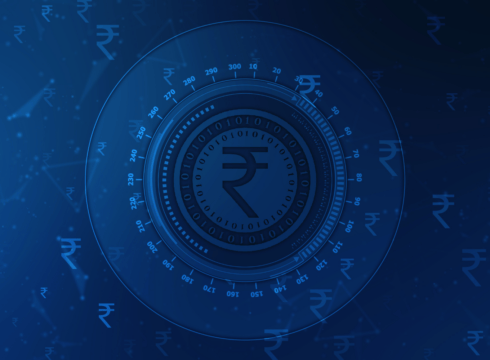The Indian rupee has plunged, recording a new low of INR 82.80 per US dollar, which is a serious cause of worry for Indian startups
Rupee depreciation can have an adverse impact on the startup’s growth, sustainability, and existence
Given the rupee value, the INR-USD rate lowers the portfolio values and returns for the VC, making it challenging for startups to raise funds
Inc42 Daily Brief
Stay Ahead With Daily News & Analysis on India’s Tech & Startup Economy
The Indian rupee has plunged, recording a new low of INR 82.80 per US dollar, which is a serious cause of worry for Indian startups. According to Bloomberg, it has lost a value of almost 7% against the dollar in 2022, amid consistent fund outflows.
Furthermore, the worst-case scenario for the domestic currency has emerged as the market evaluates the US Federal Reserve’s policy stance, with forex experts projecting the rupee to lose more strength against the US dollar in the coming months.
In the past decade, Indian startups have seen remarkable growth, achieving a milestone of 100 unicorns in May 2022. In the present scenario, rupee depreciation can have an adverse impact on the startup’s growth, sustainability, and existence.
Most of the VC funding in India is dominated by funds in dollars. This involves the process of deliberate assessment of portfolio values and exit returns in dollars. Given the rupee value, the INR-USD rate lowers the portfolio values and returns for the VC, making it challenging for startups to raise funds.
Impact Of Weak Rupee On Valuation
The depreciation of the rupee has brought worries for startups and venture capitalists as it will cause a slowdown in the Indian funding landscape. The Fed’s unprecedented increase in interest rates, on the other hand, has had a significant impact on capital inflows into an emerging market like India. This creates a situation of fear for many investors as it will make it difficult to bring funds into the Indian market, therefore decreasing liquidity.
Usually, global investors consider historical factors associated with currency depreciation before contemplating funding decisions. As a result, startups must take a holistic approach to changing investor behaviour in a highly volatile market. Since they are not immune to the sliding rupee value, startups can further expect delays in attracting foreign investments and disagreements related to their valuations.
Risks For Startups Raising Funds In Dollars
The unprecedented drop in rupee value increases the risks for startups looking to raise funds in dollars. The highly volatile market makes the entire funding scenario more vulnerable for founders. For example, if startups took out a loan when the dollar was worth less than it is now, it would become much more expensive for them as the rupee depreciates at a rapid rate.
Unlike large and established enterprises, startups do not have hedging strategies to mitigate currency risk. They are left with the option to have effective commercial terms and financial management that can help them manage the impact of the risk.
Major Cause Of Concern For Unicorns
India has a unique story of unicorns globally. So far, 105 startups have made their entry into the unicorn club, collectively valuing at $340 Bn and raising over $93 Bn in funding. A weak rupee can potentially change the entire story of the unicorn journey for startups. The biggest change will be seen in the valuation if operations costs shoot up and sales come down as a consequence of rupee depreciation.
Some unicorns and those on the trajectory to becoming a unicorn might be dislodged from the podium. Particularly because the majority of startups have their revenue base in the Indian rupee, and its depreciation will result in a longer time for them to become a billion-dollar company. In addition, global investors have become extra cautious, resulting in lower revenue and valuation expectations.
Final Thoughts
Though rupee depreciation is a matter of concern for the Indian startup ecosystem, it has different implications for different startups depending on their nature of service or business. A weaker currency boosts the country’s exports. Thus, startups building products made in India could see a surge in their sales as dollar pricing will be more competitive.
Having said that, more than rupee depreciation, forex is a major cause of concern for startups and investors. The RBI has already used $80-90 Bn of its reserve to protect the rupee. If the pace at which reserves are being utilised continues, India will have to witness a cascading effect that will eventually pull down the sharp uptick in growth that Indian startups have achieved over the years.
{{#name}}{{name}}{{/name}}{{^name}}-{{/name}}
{{#description}}{{description}}...{{/description}}{{^description}}-{{/description}}
Note: We at Inc42 take our ethics very seriously. More information about it can be found here.


